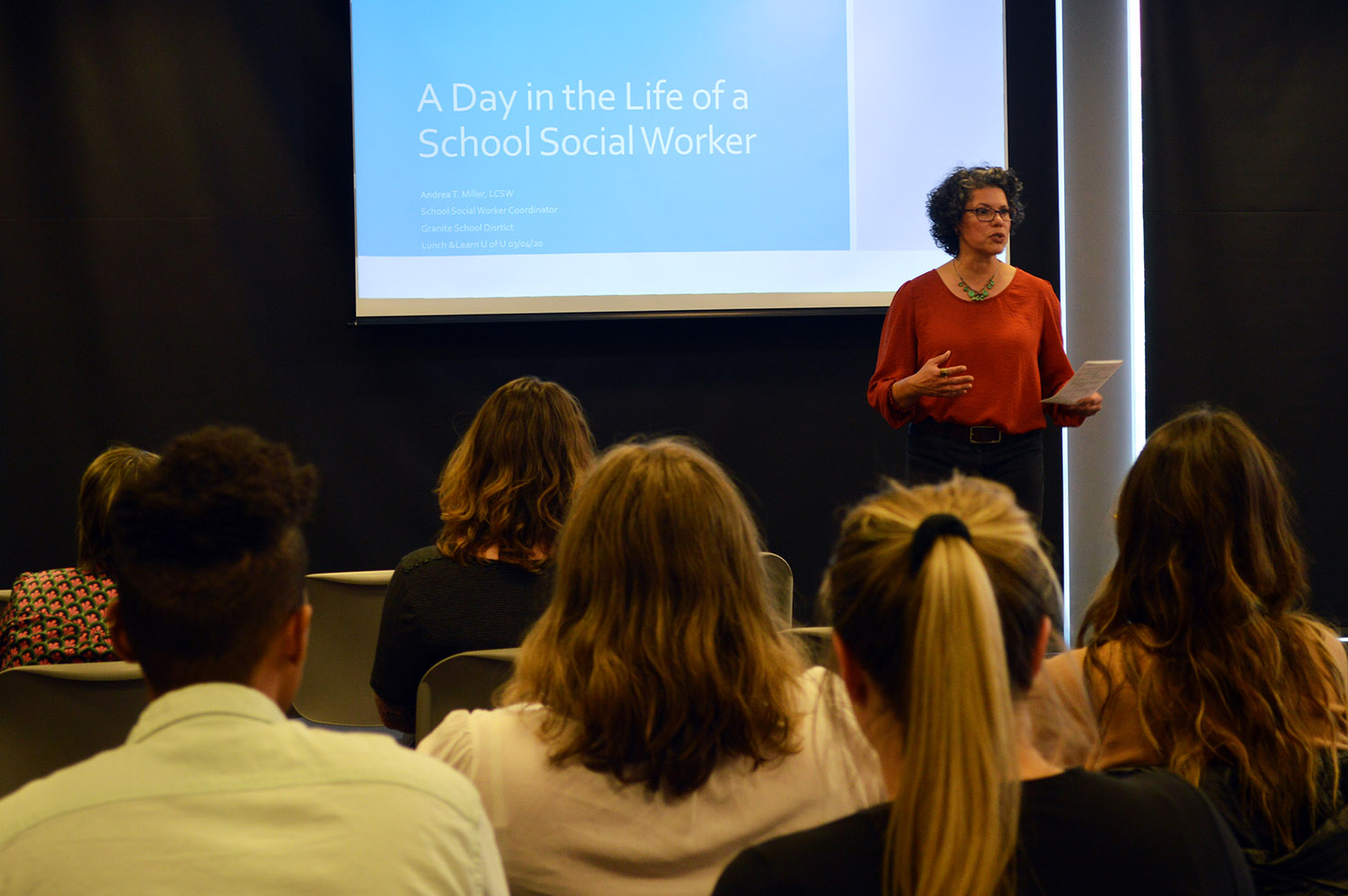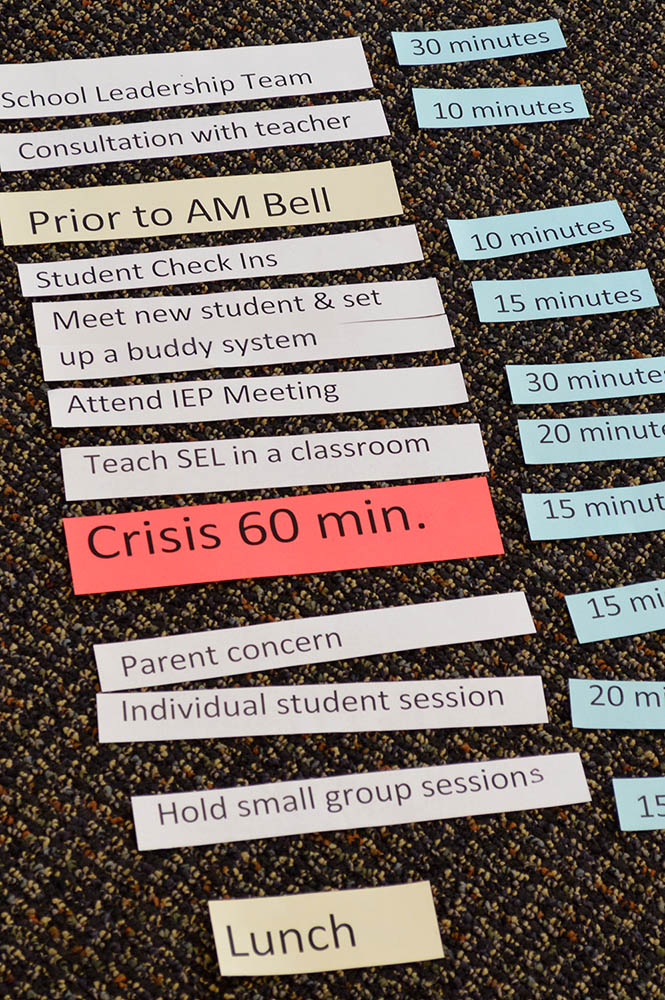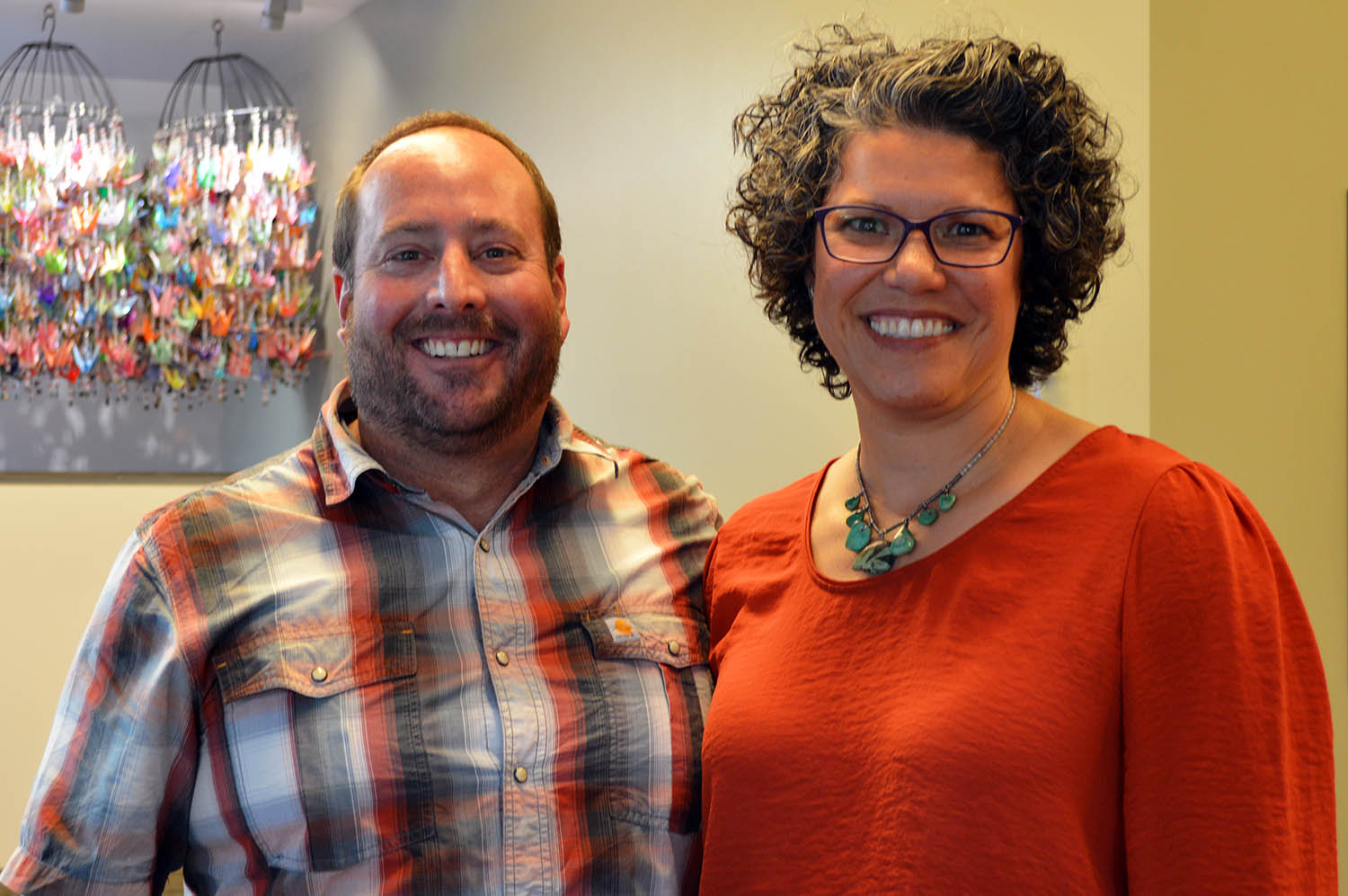The Genesis of a New Course of Study for Social Workers
By Stephanie Dawson Pack, PR/Marketing Assistant
As a writer of stories, I conduct a lot of interviews. I hear a lot of stories about what and how and why people are engaged in the work they do. Each time, as I leave an interview, I consider the particular mood invoked during the conversation. The atmosphere surrounding this conversation was exuberant. And the energy was thick in the room as our conversation unfolded…
This story starts with House Bill 373. For some, Utah House Bill 373 was nothing more than a blip on the radar—for most, not even that. Just another in a series of hundreds of bills that the Utah State Legislature would or wouldn’t pass in the 2019 session. Nearly a year later, there are even fewer who remember it. So what was Utah House Bill 373 and why was I asking about it now?
 It’s a bill that, among other things, set aside $32 million to put more nurses, school
psychologists, and school social workers into Utah’s K-12 schools. Assistant professor,
and former school social worker, Tasha Seneca Keyes explained there is a great need
for more mental health support in Utah schools. “Part of that has to do with the
high rate of suicide we have in the state,” she said. “Part of it is that schools
are becoming more diverse—racially, socioeconomically, with gender identity, sexual
orientation. We have more immigrant and refugee students in our schools. Because
of those demographic changes in our schools, there’s a huge shift and need for more
mental health providers."
It’s a bill that, among other things, set aside $32 million to put more nurses, school
psychologists, and school social workers into Utah’s K-12 schools. Assistant professor,
and former school social worker, Tasha Seneca Keyes explained there is a great need
for more mental health support in Utah schools. “Part of that has to do with the
high rate of suicide we have in the state,” she said. “Part of it is that schools
are becoming more diverse—racially, socioeconomically, with gender identity, sexual
orientation. We have more immigrant and refugee students in our schools. Because
of those demographic changes in our schools, there’s a huge shift and need for more
mental health providers."
Her colleague, Assistant Professor/Lecturer Rich Landward, also a former school social worker, added, “We’re in the middle of a nationwide crisis. Never have kids been so anxious and so depressed in the history of our country. We’re in the middle of an opioid disaster that is impacting parents. These things are impacting the social and emotional learning of kids. And that’s finally come up to legislative awareness.”
With new funding in place, school districts began seeking the qualified professionals they needed to bring aboard.
 Historically, in order for a social worker to work in a school setting, they had to
have an educator license, in addition to their professional social work degree and
license. In an effort to get more social workers into schools, last fall, the Utah
State Board of Education proposed that for school social workers, the requirement
for an education license be waived. Waiving this requirement would allow licensed
clinical social workers, social workers who are typically specialists in micro level
social work, to be hired in schools. “When you make a change like that, you lose
a lot of valuable mezzo and macro level expertise,” said Prof. Landward. Dr. Keyes
added, “To make a school work, you have to have mezzo and macro work happening. That
community and systems level work is work that social workers are very uniquely trained
to do.”
Historically, in order for a social worker to work in a school setting, they had to
have an educator license, in addition to their professional social work degree and
license. In an effort to get more social workers into schools, last fall, the Utah
State Board of Education proposed that for school social workers, the requirement
for an education license be waived. Waiving this requirement would allow licensed
clinical social workers, social workers who are typically specialists in micro level
social work, to be hired in schools. “When you make a change like that, you lose
a lot of valuable mezzo and macro level expertise,” said Prof. Landward. Dr. Keyes
added, “To make a school work, you have to have mezzo and macro work happening. That
community and systems level work is work that social workers are very uniquely trained
to do.”
Dr. Keyes and Prof. Landward weren’t the only school social workers in the state that felt that way. School social workers across Utah came together to testify to the State Board of Education about why they felt the change would be harmful to students in our schools. “I have never seen the state’s school social workers come together like this before,” said Prof. Landward. “It’s one of the biggest macro projects I’ve worked on in my career.”
Ultimately, in what Dr. Keyes and Prof. Landward feel is a big win for K-12 students across the state, the school board did reverse their decision—an educator license is still required for school social workers. “Every adult in the school is an educator,” said Prof. Landward. “Having school social workers maintain their educator license is a part of keeping social and emotional learning as focus for kids in school.”
This movement was positive, but it still left a gap—how was the state going to find enough social workers for schools? Emulating what they teach, Dr. Keyes and Prof. Landward did a gaps analysis—a social work assessment meant to answer these questions:
- What is the need?
- Where is the gap?
- How do we fill that gap?
Applied to this case, the analysis looked something like this:
- The need for school social workers is going up.
- There aren’t enough social workers trained to respond to the unique needs of a school environment.
- The U can create courses that train social workers in the specific skills they need to help students succeed.
And that’s exactly what they’ve done. Beginning in the fall of 2020, a school social work career path will be offered at the University of Utah College of Social Work. It’s a program of study that includes course work in the necessary micro, mezzo, and macro skills, combined with a school-based practicum so MSW students get on-the-ground experience. With both classes offered on campus and online, Dr. Keyes hopes the curriculum will be utilized statewide. “We are the only college or university in the state that will have a career path for school social work,” she said.
“It’s important that we practice what we teach,” said Prof. Landward. “With this program, we’re helping to fill a gap in the educational needs of our community.” The excitement in Prof. Landward’s voice was reflected in the face of Dr. Keyes. It was one of the things that emphasized so strongly the strength of their drive.
This work is their calling. It’s their passion. It’s what keeps them going when they don’t want to get out of bed. The satisfaction in Prof. Landward’s voice was evident as he continued, “I’m really proud of what Tasha and I have created. This is a career highlight for me.”

